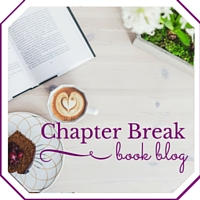I received this book for free in exchange for an honest review. This does not affect my opinion of the book or the content of my review.
 The Spider's Thin Legs by Ada-Ari
The Spider's Thin Legs by Ada-Ari Published by Self-published on December 15, 2021
Genres: Children's, Fairy Tales & Folklore
Pages: 32
Format: eARC
Source: Provided by author for honest review

Have you ever wondered why spiders have thin legs? Journey with us to Ghana, a country in Africa, for Ada-Ari's retelling of this time-honored folktale. You will learn about Anansi and how his actions had long-lasting effects on spiders all over the world. The story features counting reinforcements from the numbers 1 - 8 as well as a moral lesson on the importance of following directions. This hardcover version includes two fun fact cards about ASHANTI culture: The Kente Cloth and The Golden Stool. Ada-Ari's storybooks are historical artifacts - returning a piece of the African legacy that was lost over centuries of migration from the continent. The back cover of each book provides child-appropriate geography lessons highlighting the specific country in Africa that each story came from.
This hardcover version includes two fun fact cards about ASHANTI culture: The Kente Cloth and The Golden Stool. The Ashanti tribe of Ghana is the birthplace of this Anansi Folktale.
![]() Julie’s Review:
Julie’s Review:
The Spider’s Thin Legs is such a cute book. The story is told in fun rhymes and the illustrations are just darling. Our little spider friend just wants to play with everyone and does not want to miss out, but Anansi also wants to get the task done, his task being taking the bread to Grandma. So by problem-solving a solution, he comes up with a way to not miss out when his friends are ready to play and still get his task done. But what happens when all his friends try to pull him back all at once? Well, there’s our adorable story that explains why spiders have long, thin legs.
I love that the book is a story sharing an African folktale. Preserving culture is so important and the Hardback book comes with a lesson and fact cards about ASHANTI culture, which is wonderful. A great read for kids from those aged obsessed with the “Itsy Bitsy Spider” song to those learning about world cultures and geography.
Author Q&A:
At what point did you decide to be an author and what was your path to publication?
When I started reading to my now 4-year-old daughter, I remembered all the folktales that my grandmother and other elders shared with me growing up. I instantly wanted her to have those stories, and I knew that I wanted to write them down in the form of a picture book. It took a few years to pursue the dream, and I chose to self-publish.
What do you do when a new idea jumps out at you while you’re still working on a book? Do you chase the squirrel (aka “UP syndrome”) or do you finish your current project first?
I am retelling African folktales that already exist, so I do not have too many new ideas that jump out mid-writing. I do go over the manuscript multiple times and revise as new ideas pop up. I can’t thank my community enough for throwing out multiple ideas and providing feedback. My books have transitioned in many ways due to their feedback
Describe your writing process. Do you outline, plot and plan, or is your writing more organic?
I am quite impulsive, and it manifests in my writing style. I sit down and write an entire book in one go. Then the grueling task of revising and editing begins. Even after I have published, I still see opportunity for improvement, but at some point, I just have to stop scrutinizing the work. I write picture books, so the first step is to solidify the manuscript, then translate for the illustrator. I will admit that I still edit the text while at the illustrator and even at the printer. With each book, I am getting better about finalizing the text before sending to illustration. It has gotten me in trouble with at least one illustrator so far.
Tell us what you enjoy most about writing children’s books.
I enjoy the illustration process. I love sharing each illustration with my children and seeing them light up. It is so much fun and makes it worth the work.
What have you found to be most challenging about writing?
Overcoming impostor syndrome. I am really shy underneath it all (although no one believes me), and I am constantly doubting my right to exist in this space
Have you been able to incorporate your previous experience from your jobs/education in your writing?
Not so much in my writing, but in the project aspect of self-publishing, I have absolutely leveraged my professional experience in strategy and operations
Describe the book in 10 words or less for people who are just learning about it.
African Storytelling Reimagined – a retelling of beloved African Folktales
Is there anything you would like people to take away from your book?
I would love for my readers to take home the various moral lessons embedded in each story. In addition, I would love for readers (the little ones) and their caretakers (those reading the books to them) to learn more about the various African cultures that brought these stories to life. I see these books as the unearthing of historical artifacts. These stories have been passed down orally for thousands of years. They have been lost to centuries of migration (forced and voluntary) from the continent. I am so glad that we are in a time where diversity is valued and celebrated and I see this as a great way to expose the world to our African legacy.
Do you have any odd (writing) habits?
I am a complete newbie in this space, so I’m sure my method is quite unorthodox. I start off just spitting out the entire manuscript. As a picture book author, I have a word count limit. Once I write it down, I begin the grueling task of compressing the story. I have ended up transitioning into rhymes even though that is not my initial intent. That exercise can be quite fun. I literally google rhyming words and restructure entire pages just to make the rhymes flow.
· What has been the toughest criticism you have received as an author? What has been the best compliment?
I am not known yet, so I am still waiting for the critics. The impostor syndrome in me is my worst critique to date. I question my writing ability, the uniqueness of the product, and sentence structure. So far though, I have received nothing but praise and compliment. The illustrations, which I cannot take credit for, are a big hit. Folks have said that they love the rhyming and the story itself. My kids absolutely love the books and want to take them for show and tell every chance that they get.
Share some advice for aspiring authors. What advice would you give to your younger self?
Go for it. Do not give in to your fear. I have received a lot of praise for just following through on the initiative. It doesn’t have to be perfect and be open to feedback. But once you have that first draft, you will be surprised how many ideas will flow from the most unexpected sources
What is your favorite line from your book?
From The Spider’s Thin Legs: Anansi arrived at grandmother’s house happy he’d followed mom’s rule. He reached for the bell and from all eight legs, he felt a tremendous…” The rest would be a spoiler
Have you ever experienced writer’s block? How did you deal with it?
I did for about 3 years haha. I had to clear my head and deal with trauma in order to take first step and spit out the manuscript. Even after that, I experienced several blocks as I tried to revise. In those instances, I simply would wait and come back when my head was clearer
What do you like to do when you’re not writing?
I am probably just as childlike as the stories that I write. I love playing with my kids and entering their world. They are so hilarious and full of adventure. Every day is an exploration. I also play the piano in my free time. Outside of that, I work full time in strategy and operations.
About Ada-Ari
My children were my inspiration. I grew up in Nigeria and did not want my second-generation American children to miss out on these stories that my grandparents and family members told me. As I took a step back, I realized a much broader applicability. These folktales are unique pieces of African culture that have existed for centuries. By sharing the stories with children of all backgrounds, I am also hoping to realize my dream – for future generations to grow up with a deeper awareness of and appreciation for African culture because they grew up with a piece of the history and legacy in a medium as unassuming as an entertaining story book.
Ada-Ari Books feature fun, kid-appropriate geography lessons highlighting the specific country in Africa that each story came from. In addition, each hardback book includes a pair of fun fact cards about the specific African tribe that each story originated from. Children will get a great story, a good moral lesson, and a geography/cultural lesson as part of the experience with Ada-Ari Books.
Note: Some posts may contain affiliate links. Should you choose to purchase a product, we will receive a small commission for the sale at no additional cost to you. Chapter Break is a participant in the Amazon Services LLC Associates Program, an affiliate advertising program designed to provide a means for sites to earn advertising fees by advertising and linking to Amazon.com.




Thank you for putting this out there. I agree with your opinion and I hope more people would come to agree with this as well.
Charito Hans recently posted…Teaching Children Manners: Five Parenting Tips